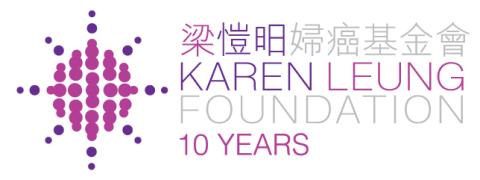About the Project
In collaboration with PHASE Scientific, the Karen Leung Foundation is offering 200 women a novel non-invasive cervical screening method via urine sampling for HPV DNA testing.
All women participating in Project SAFE will receive a FREE pap smear, combined with a HPV DNA test and a Urine test for women which have not been screen in the last 3 years.


Participants Guide


STEP 1


STEP 2


STEP 3
FAQs
There are some general preventive measures such as avoiding smoking, practicing safe sex and leading a healthy lifestyle. However, the best ways to prevent cervical cancer are vaccination against HPV and regular cervical cancer screening.
Vaccination works best for young girls before they are sexually active. However, it does not provide full protection. Hence, regular cervical cancer screening is recommended.
Programme & Promotion Partners






